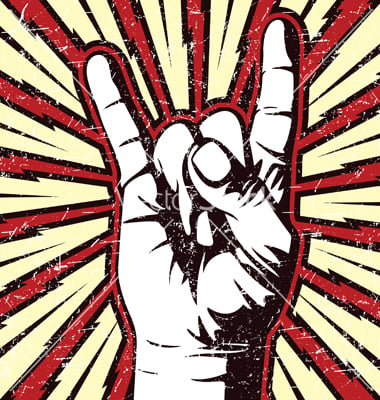I use these all the time, my kids say “just tell me what time it is.”
Seriously, though. It takes less brain processing power and just about the same speech-time to just say the dang time.
If your brain works in digital time, this is true.
Us olds have to translate the other direction.
It’s like hearing someone say “why doesn’t everyone just speak English? Why go through the extra effort of speaking Spanish?” because you assume everyone’s internal monologue is in English.
What do you mean if your brain works in digital time. This doesn’t translate for me and I grew up with regular clocks and wrist watches. All time is the same. A clock with both hands facing 12 is and always has been twelve o’clock. Clock face or digital clock. They give the same time. Comparing two devices that give the same information in different ways to language is absurd.
Your comparison could work if the subject being discussed was 12 vs 24 hour time keeping. Then there is a translation between the two.
Analog clocks lend themselves better to thinking in fractions of an hour or day, like this post is talking about, as an hour and a half day are both represented as a circle
Digital clocks lend themselves better to thinking in terms of number of minutes and hours directly. When working numerically, fractions of 60 are generally less intuitive, and fractions of 12 often so as well. Most people who don’t work with angles often think of fractions in terms of percent, or powers of two.
“Quarter past” kind of tweaks the brain wrong when a quarter is intuitively 25.
fractions of 12 are unintuitive
Really? I’ve always found them very pleasing.
oh i think this may be a cultural thing, here in europe when we say “digital time” we specifically mean 24-hour time because “AM/PM” isn’t used here.
It’s the difference between saying “dinner’s at seven” and “lunch ends at 13:30”
Ahhh!!! That totally makes sense. I took the comment to be about digital clocks specifically vs analog clocks. Not about the type of time keeping. Then the translation analogy totally makes sense and works! Gotta love learning new things from people. Thanks Swedneck!
It’s inefficient is what I’m suggesting.
It is a one syllable difference, at most. Fif-teen versus Quar-ter-Past. Or Thir-ty versus Half-past. And for-ty-five versus quar-ter-till.
But it is also about precision. If I say “Let’s meet up at 4:45” that implies a lot more specificity than “let’s meet at quarter to five”. The firmer is an exact time people should meet at and the latter is “around that time”.
https://www.youtube.com/watch?v=NeopkvAP-ag goes into the difference between analog and digital time and what that means with thought processes. But a lot of it boils down to thinking in terms of “parts of a whole” versus “specific times”.
Here is an alternative Piped link(s):
https://www.piped.video/watch?v=NeopkvAP-ag
Piped is a privacy-respecting open-source alternative frontend to YouTube.
I’m open-source; check me out at GitHub.
The most inefficient part of human brain is having to consciously process things. So going with whatever patterns you’re used to is always going to be faster
I think there’s bigger problems if you have to process the time. If you’ve never heard it in your life, maybe you’d stop and think, but it’s honestly just something you learn and know, no thinking required.
It’s like when people don’t know 24 hour time, when it’s something you’ve just grown up with, there’s no thinking and then you are confused when you hear people have to think about it or “calculate”.
24 hr time should be the global standard too, IMO. Reduce all possibilities of confusion, I say.
To be honest, it’s mainly just USA that just use 12-hour (and call 24-hour “military time”?), the large majority of the world use both interchangeably.
If we’re doing this I’m referring to the hour past midnight as 0:XX and not 24:XX and you can’t stop me
I have a friend that had issues telling time with analogue clocks when we studied together in a university. It really is just the matter of what you grew up with.
My kids also hate that all my devices use 24 hour time >_>
I’ve been using 24 hour time for the past few years and I still have trouble with it from time to time and have to calculate it in my head.
Also, a different example of something similar is how old I am. Despite knowing my birth year, I still struggle recalling how old I am I still have to take a moment to calculate it.
I did the same thing with my parents, mostly because they’d just say “quarter after” but would never say any number. If you made a word cloud of everything I’ve ever said in my life, “after what” would be gigantic in the center with every other word tiny around the edges.
This just triggered a deep memory from within me. My brother used to say “half past” when I asked him the time, and when I would say “half past what?” the response was always “Half past the monkeys ass, a quarter to his balls”
I still don’t know what it means or where it came from, but when I was 8 years old, it was hilarious.
Even worse than that imo is ‘quarter of’. I swear to god it’s been used to mean both before or after whatever hour they’re talking about
mfrs think I know what hours its close to when I probably don’t know the day and am lucky to know what month it is.
Anyone using “quarter of” to mean X:15 is just incorrect. That’s “quarter after”.
When you say quarter of, you are supposed to say the next hour. Quarter after 4 is a quarter of 5.
That’s… I guess that makes sense but that’s really weird and ambiguous.
EVERY TIME
You’re failing at your most important job.
Come to Germany. We still argue about how to properly say that. In some regions “quarter nine” means 8:15.
Could be worse. Could be Dutch.
What time is it?
Ten over half eight.
…
7:40
…what
I see no problem with this? Makes sense.
In Spanish its pretty common to express time past 30 as next hour minus time left. So 8:45 can be expressed as 9 minus 15
I feel this is the way that best reflects how you look at an analog clock. First hours then minutes. It’d be interesting to know if the amount of people saying time the analog way depends on the system used.
deleted by creator
8:45, 9:15
Seriously . If I ever heard someone say “quarter nine” as a time, those are the only two I would ever consider to be possible options
10 ÷ .5x8
Why WOULD it mean 8:15? The only two options I would think of are 8:45 and 9:15.
Old man yelling at clouds checking in. I understand the prevalence of digital, but still can’t wrap my head around younger people not understanding how to read an analog clock.
Of course the kids don’t know how to read them. Kids rarely encounter analog clocks and when they do, they have several digital clocks within arms length. Most people wouldn’t reach for a slide rule when they have a calculator.
And to be fair, analog clocks are objectively worse than digital clocks in every way aside from aesthetics.
I grew up around both, for simply telling time, digital is far better. Analog though to me gives a better sense of the passage of time I guess you could call it? Like, you can see the hour hand has moved a distance after a little while; or if I want to do something for half an hour, I just have to watch for when the minute hand is pointing 180 degrees away from where it was when I started, things like that.
My kid has analog clocks on her school tests and homework as questions. They are teaching them to read them, most just don’t care for the reasons you stated.
as someone with adhd I much prefer analogue clocks, they allow me to see time through physical distance of the clock hands which helps with perceiving it, numbers don’t do that for me
I went to public school in the 80s and every classroom had a very large analog clock on the wall. Even back then, it mildly annoyed me when teachers and other adults would say “half past” and so on. It always sounded archaic to my ears, even 40+ years ago.
I also get annoyed when people say “two thousand and twenty-four” for the year. Just say “twenty twenty-four”. We didn’t say “one thousand nine-hundred and eighty-four” back in the day, we said “nineteen eighty-four”.
There was a solid decade where the pattern broke, and so e people didn’t get back into it.
Two thousand, two thousand one etc don’t really work as “twenty oh-one”, etc.
I always said “aught” from 2000-2010 maybe even into 2011. “Twenty-aught-eight!” And because it entertained me, I continued, “Twenty-aught-eleven!” Just having fun.
Calling them “the aughts” is also the best way I’ve found to refer to that decade
I was taught in the '80s that you shouldn’t use ‘and’ in a number that isn’t followed by a decimal portion (e.g. 23 and 4 hundredths). I’ve seen various back-and-forth on that topic over the years.
That sounds familiar. Applies to check writing, for those who still do that.
This is literally the first time I’ve ever heard the term “analog clock”.
Also, the title of the book (and film) is not 1984. It’s Nineteen Eighty-Four.
But I’m not a boomer, I’m genx, so whatever. I’m outta heeeere… 😎
And stay offa mah lawn!
It goes
- nineteen ninety-eight
- nineteen ninety-nine
- two thousand
- two thousand one
- two thousand two
- …
- two thousand nine
- twenty ten
- twenty eleven
- etc
Strange, nothing has changed in my experience. It’s a general way to tell the time, not exclusive to analog clocks.
It does not make sense to convert digits to figure of speech, just for the fuck of it.
The practice still has one very important application:
“What time is it?”
“Half past a monkey’s ass, quarter to his balls”
Our family’s was “freckle past a hair and time to get a watch”
A quarter to 1400 does sound a bit odd.
[deleted]
I rarely even bother using 12 hour time any more.
KDE for years had a clock option called “fuzzy clock” where you could set the granularity of time, either in 5, 10, 15, 20, 30, or 60 minute resolution. So it would just say “five to six” or whatever in words. It was designed to keep you from clock watching while working. Not sure if it exists anymore :)
It does! I recently switched to Linux, and when messing with some of the options, I found that. It’s pretty neat tbh
Never saw the point. It doesn’t save syllables, and people unaccustomed to it get confused
My internal clock runs on a circle… So if I am guessing or saying roughly the time I will use “quarter to”, “ten past”, etc. If it’s an exact time I will say it to the minute, 6:43 etc.
I’m not sure. Anecdotal evidence, but when I was little, we learned how to read analog clocks, and all the “half past whatever” terminology. Actually, I think most of us in my class at that time primarily used analog clocks. Even then, we never used those sorts of phrases. We would just round to the nearest 5 minutes if anyone asked.
That’s still what I do nowadays. Of course, there’s phones and computers now that can tell you the time, but if I want a physical clock, I prefer to get an analog one. And I still just round to the nearest 5 minutes.
In my interpretation, those phrases fell out of favor a long time ago
I was thinking the other day that I never hear the phrase “bottom of the hour” (meaning __:30) anymore.
I don’t get why, it’s not like they aren’t learning fractions these days right?
Because it’s easier to use 5:15 or 5:30 when you get a digital readout. No one’s counting every individual tick on an analog clock, so fractions make more sense.
We have strayed so far from God



















